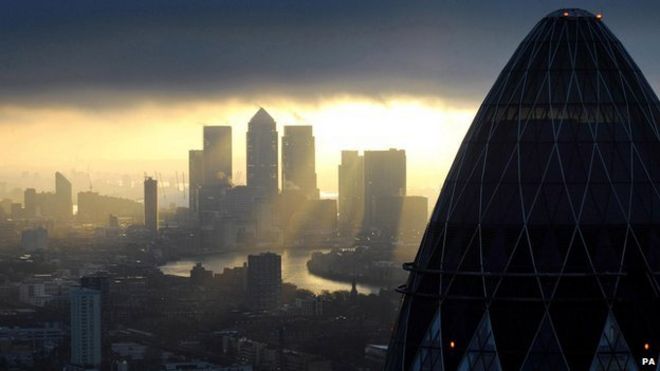Jawed Naqvi in The Dawn
Some left-wing activists these days are worriedly discussing post-16th May India. According to them Narendra Modi’s consummate victory on this day last year marked a paradigm shift in the nation’s politics — for the worse, they assert. Others who shared the traumatic perspective changed their view earlier this year after Arvind Kejriwal emerged as Modi’s unlikely foil and bête noir.
Before we continue with Kejriwal’s near mythological role in stalling the rightist juggernaut led by Modi, let us briefly look at the prime minister’s Achilles heel, which, ironically, happens to be the clear majority he won exactly a year ago. In other words, a majority in parliament in the Indian system is no assurance of stability, a weakness that was best illustrated by Rajiv Gandhi’s turbulent tenure.
Gandhi’s four-fifths majority in the Lok Sabha remains unmatched to this day. Ideally, it should have given him five years of solid, stable government between 1985 and 1990. Instead, what he got was a crippling defence procurement scandal that haunted him till his death. His own party acolytes deserted him and some even conspired to topple the young prime minister.
Amitabh Bachchan, Arun Singh, Arun Nehru were among the younger lot who had come close to the prime minister after his mother’s assassination. They left him before his term was over. Others from the Gandhi Camelot moved over to the opposition Bharatiya Janata Party (BJP). His trusted aide Vishwanath Pratap Singh subsequently became prime minister in 1990. The BJP and the communists supported him.
Look at the contrast. Indira Gandhi who split her party to be able to become prime minister at the head of a minority government in 1966, ruled with far greater confidence with support from communists and other assorted liberals.
Worried leftists should unequivocally thank Kejriwal for relieving them of their trauma over the Indian PM.
Her legacy still energises Indian politics, its economy and culture too. The banks that were nationalised by her remain state-owned. The two words she added to the preamble of the constitution — secular and socialist — have resisted periodic assaults from the right. The liberal arts and the scientific spirit she gave the academia with no impressive majority in parliament is planted as firmly as a sturdy molar that can only be uprooted by a painful surgery.
Easily the best example of someone without a majority who completed three full terms, first as finance minister and two as prime minister, is Manmohan Singh. He introduced sweeping economic reforms though his government had to bribe a few tribal MPs to stay in majority. He got support from the communists in his first tenure as prime minister and earned enough brownie points to win a second term. He faltered after he evicted the left, not because he did not have a majority in parliament.
Atal Behari Vajpayee was invited to form a bizarre minority government in 1996. It lasted all of 13 days. How could the president invite anyone who did not have the remotest proximity to finding a majority? Indian presidents have not always been transparent. Anyway it was a two-week government that signed the damaging Enron electricity deal, majority or no majority.
My worried leftist friends should unequivocally thank Kejriwal for relieving them of their trauma over Modi. The Aam Aadmi Party he heads has single-handedly changed the contours of possibilities for India’s political cobblers. When I see former BJP minister Arun Shourie laying into Modi on the eve of his completing his first year in office, the criticism reminds me of Rajiv Gandhi’s disloyal friends. However, Shourie could only speak because of Kejriwal’s amazing victory, which took the wind out of the prime minister’s sails.
If Mufti Mohammed Sayeed in Indian Jammu and Kashmir got the BJP MLAs to swear by the Kashmiri constitution they were loath to, he had his way because AAP’s victory in Delhi had emboldened him. Sonia Gandhi, ever so reclusive since the drubbing of her party by Modi, suddenly found spring in her walk. She led the entire opposition, including communist leader Sitaram Yechury, to the presidential palace to protest Modi’s land acquisition bill. Mamata Banerjee in West Bengal and the backward caste satraps in Bihar and Uttar Pradesh have benefited from Kejriwal’s humbling of Modi. Even Modi’s ally the Shiv Sena is now growling thanks to AAP.
Modi’s choreographers, which include the bulk of the media, are projecting his foreign policy in glowing terms not the least to mask his reneging on most domestic promises — rural, urban, rich, poor. With his claims of head transplants in ancient India, the prime minister has also become a caricature of the tough cookie he was thought to be. His gag measures against certain NGOs have boomeranged, inviting an earful from foreign governments.
He might have felt close enough to President Obama to call him by his first name, but it was more gracious for India that Obama called Manmohan Singh his learned guru.
Examples are galore of leaders being spurred by domestic difficulties to make foreign policy choices, and visits. Rajiv Gandhi was laying into Pakistan with Operation Brass Tacks before the Bofors scandal broke. When the scam raged he found himself signing a major agreement with Benazir Bhutto for nuclear safety with Pakistan.
Modi can wear any headgear in China, but he can’t approach the simple handshake between Deng Xiaoping and Rajiv Gandhi nor Narasimha Rao’s game-changing 1993 agreement with premier Li Peng for “peace and tranquillity on the borders”. In Mongolia, as I write, Modi is having a great time. Who showed him the way?
Indira Gandhi got Mongolia to second the resolution for the recognition of Bangladesh at the UN in 1972. The job done, she invited the Mongolian prime minister to Delhi, took him out for a quiet chat under a tree at Teen Murti House. When she offered him a cigarette, the guest hesitated. She lit one herself, helping her friend to pick one from the pack.
